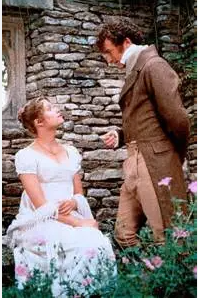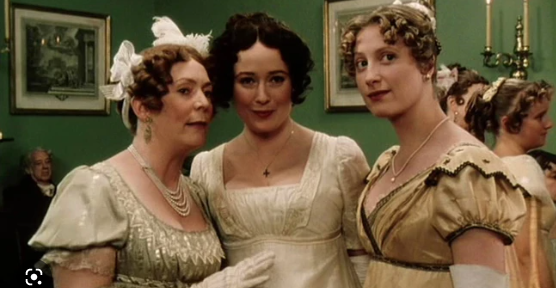Have you read Jane Austen’s “Pride and Prejudice”? When I taught the book, one of the activities required was to have the students keep a log of how often the word “prejudice was used by Austen and a how often the word “pride” appeared. Would it surprise you to learn “prejudice” is only used SEVEN times in the novel? Does that fact not make you wonder why the word is in the book’s title, especially when “pride” is used FORTY-SEVEN times.
Who do you suspect is the prideful character and who is the prejudiced one? Do Darcy and Elizabeth display an equal amount of prejudice in the book? Let us find out about “prejudice” in a book known as Pride and Prejudice.

The first time we encounter the word “prejudice” in the novel is in Chapter 18. I bet most of you would have assumed it was earlier. In this example, Elizabeth accuses Mr. Darcy of being prejudiced. So, is Elizabeth projecting her prejudice upon the gentleman? I will leave it to you to decide.
“Yes, always,” she replied, without knowing what she said, for her thoughts had wandered far from the subject, as soon afterwards appeared by her suddenly exclaiming, “I remember hearing you once say, Mr. Darcy, that you hardly ever forgave, that you resentment once created was unappeasable. You are very cautious, I suppose, as to its being created.”
“I am,” said he, with a firm voice.
“And never allow yourself to be blinded by prejudice?”
“I hope not.”

The second use of the word “prejudice” does not come until Chapter 36, when Elizabeth reads Mr. Darcy’s letter of explanation with a bit of her own prejudice.
“If Elizabeth, when Mr. Darcy gave her the letter, did not expect it to contain a renewal of his offers, she had formed no expectation at all of its contents. But such as they were, it may well be supposed how eagerly she went through them, and what a contrariety of emotion they excited. Her feelings as she read were scarcely to be defined. With amazement did she first understand that he believed any apology to be in his power; and steadfastly was she persuaded, that he could have no explanation to give, which a just sense of shame would not conceal. With a strong prejudice against everything he might say, she began his account of what had happened at Netherfield.”

Also in Chapter 36, Elizabeth reads Mr. Darcy’s letter multiple times. Realizing how she has misjudged him, her feelings are directed inward.
“She grew absolutely ashamed of herself. Of neither Darcy nor Wickham could she think without feeling she had been blind, partial, prejudiced, absurd.”

In Chapter 40, Elizabeth explains what she learned of Wickham to Jane.
“Certainly. But the misfortune of speaking with bitterness is a most natural consequence of the prejudices I had been encouraging. There is one point on which I want your advice. I want to be told whether I ought, or ought not, to make our acquaintances in general understand Wickham’s character.”
Miss Bennet paused a little, and then replied, “Surely there can be no occasion for exposing him so dreadfully. What is your opinion?”
“That it ought not to be attempted. Mr. Darcy has not authorised me to make his communication public. On the contrary, every particular relative to his sister was meant to be kept as much as possible to myself; and if I endeavour to undeceive people as to the rest of his conduct, who will believe me? The general prejudice against Mr. Darcy is so violent, that it would be the death of half the good people in Meryton to attempt to place him in an amiable light. I am not equal to it. Wickham will soon be gone; and therefore it will not signify to anyone here what he really is. Some time hence it will be all found out, and then we may laugh at their stupidity in not knowing it before. At present I will say nothing about it.”

In Chapter 43, Elizabeth diplomatically (or perhaps not so diplomatically) questions Mrs. Reynolds about Darcy. In this example, Mr. Gardiner believes Mrs. Reynolds displays prejudice in her accolades of Darcy.
“Elizabeth listened, wondered, doubted, and was impatient for more. Mrs. Reynolds could interest her on no other point. She related the subjects of the pictures, the dimensions of the rooms, and the price of the furniture, in vain, Mr. Gardiner, highly amused by the kind of family prejudice to which he attributed her excessive commendation of her master, soon led again to the subject; and she dwelt with energy on his many merits as they proceeded together up the great staircase.”

In Chapter 55, Jane finally receives her proposal from Mr. Bingley. Elizabeth is thankful Mr. Bingley does not betray Darcy’s role in his separation from Jane. It might prejudice Jane against Mr. Darcy, and, although Elizabeth is happy for her sister, she is wishing for her own happiness.
“Would you believe it, Lizzy, that when he went to town last November, he really loved me, and nothing but a persuasion of my being indifferent would have prevented his coming down again!”
“He made a little mistake to be sure; but it is to the credit of his modesty.”
This naturally introduced a panegyric from Jane on his diffidence, and the little value he put on his own good qualities. Elizabeth was pleased to find that he had not betrayed the interference of his friend; for, though Jane had the most generous and forgiving heart in the world, she knew it was a circumstance which must prejudice her against him.
In Chapter 58, Darcy has proposed to Elizabeth. They reflect on all that preceded their happiness.
“Darcy mentioned his letter. ‘Did it,’ said he, ‘did it soon make you think better of me? Did you, on reading it, give any credit to its contents?’
She explained what its effect on her had been, and how gradually all her former prejudices had been removed.”
Was the result what you thought? Share your insights below.


Leave a Reply to Gianna ThomasCancel reply